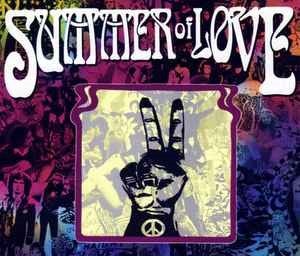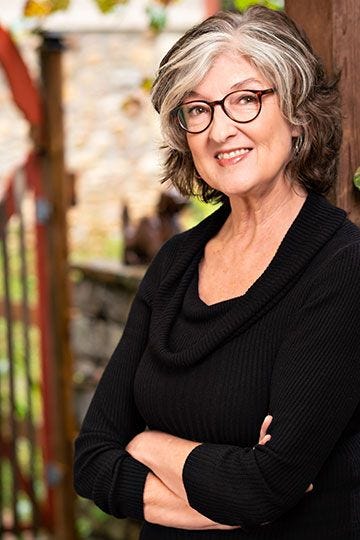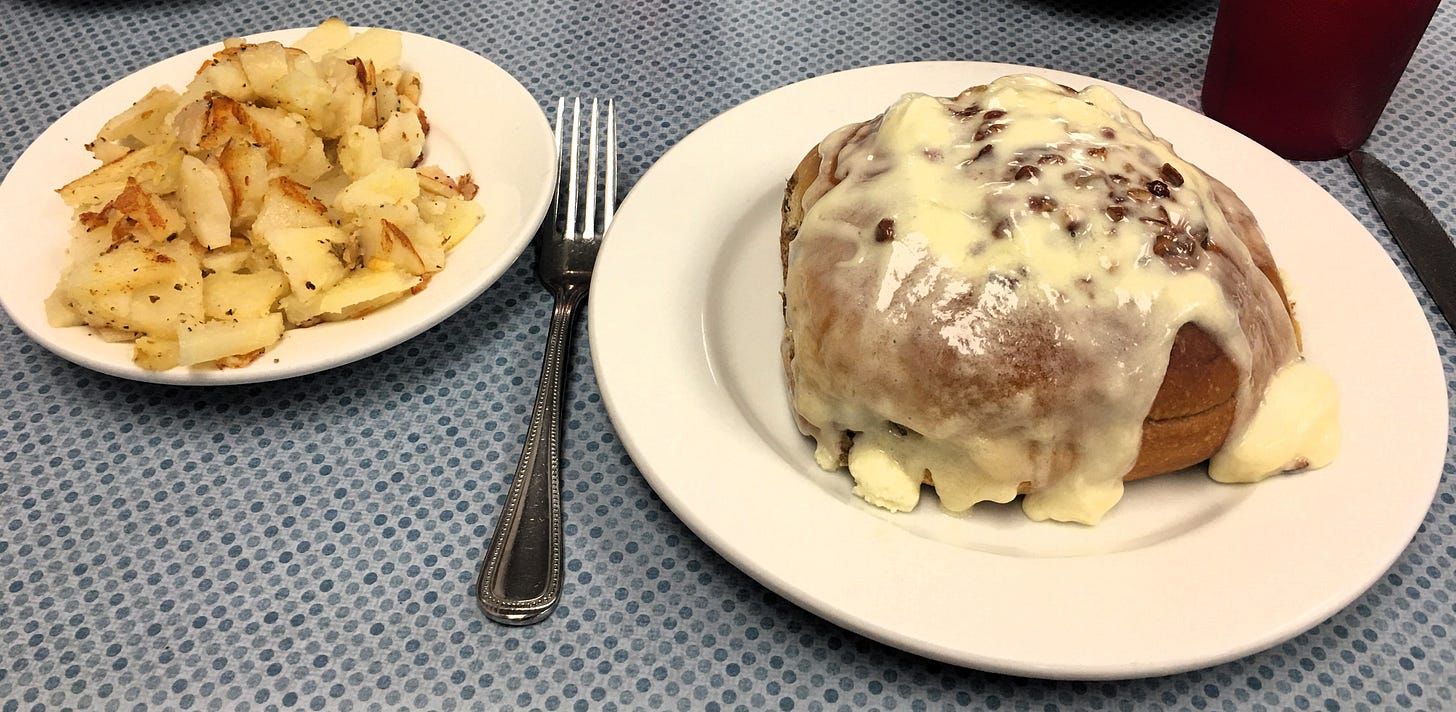Love, American Style
The Poisonwood Bible, Olden Days Café, Jefferson Airplane, Boo Buie, Snowman Sequence
Welcome to my weekly newsletter. This week’s issue features five favorite American bands from the Summer of Love, a Barbara Kingsolver masterpiece, a carb-heavy breakfast, a band that started out as an airplane before becoming a starship, a Northwestern hoops star, and a meltdown. I hope you like the picks and pics.
Fave Five 62: Love, American Style. Pulitzer and PEN/Faulkner finalist (The Poisonwood Bible), Fowlerville Fare (Olden Days Café), San Francisco Sound (Jefferson Airplane), Bucket Boo (Boo Buie), and a Snowman Sequence.
Fave Five List: Favorite American Bands from the Summer of Love
Last week’s list featured British bands from the Summer of Love. Here are five American bands, with a big hit for each in 1967, the Billboard Year-End Hot 100 Singles ranking, and the peak chart spot the song reached that year.
The Doors - Light My Fire - #6 (reached #1)
The Turtles - Happy Together - #8 (reached #1)
The Young Rascals - Groovin’ - #9 (reached #1)
Buffalo Springfield - For What It’s Worth - #27 (reached #7)
Jefferson Airplane (this issue’s Marvelous Musicians) - Somebody to Love - #33 (reached #5)
My playlist of songs from 1967 includes 405 songs. It was a very good year.
Book Best Bet
The Poisonwood Bible by Barbara Kingsolver
I had read two of Kingsolver’s books year ago, The Bean Trees and Animal Dreams, and got my mom’s copy of The Poisonwood Bible. I finally got around to reading it four years ago, and I was captivated by the story as told by the multiple narrators.
From Amazon: The Poisonwood Bible, now celebrating its 25th anniversary, established Barbara Kingsolver as one of the most thoughtful and daring of modern writers. Taking its place alongside the classic works of postcolonial literature, it is a suspenseful epic of one family's tragic undoing and remarkable reconstruction over the course of three decades in Africa.
The story is told by the wife and four daughters of Nathan Price, a fierce, evangelical Baptist who takes his family and mission to the Belgian Congo in 1959. They carry with them everything they believe they will need from home, but soon find that all of it—from garden seeds to Scripture—is calamitously transformed on African soil.
The novel is set against one of the most dramatic political chronicles of the twentieth century: the Congo's fight for independence from Belgium, the murder of its first elected prime minister, the CIA coup to install his replacement, and the insidious progress of a world economic order that robs the fledgling African nation of its autonomy. Against this backdrop, Orleanna Price reconstructs the story of her evangelist husband's part in the Western assault on Africa, a tale indelibly darkened by her own losses and unanswerable questions about her own culpability. Also narrating the story, by turns, are her four daughters—the teenaged Rachel; adolescent twins Leah and Adah; and Ruth May, a prescient five-year-old. These sharply observant girls, who arrive in the Congo with racial preconceptions forged in 1950s Georgia, will be marked in surprisingly different ways by their father's intractable mission, and by Africa itself. Ultimately each must strike her own separate path to salvation. Their passionately intertwined stories become a compelling exploration of moral risk and personal responsibility.
Reviews
“There are few ambitious, successful and beautiful novels. Lucky for us, we have one now, in Barbara Kingsolver’s The Poisonwood Bible . . . this awed reviewer hardly knows where to begin.” — Jane Smiley, Washington Post Book World
“Fully realized, richly embroidered, triumphant.” — Newsweek
“Kingsolver’s powerful new book is actually an old-fashioned 19th-century novel, a Hawthornian tale of sin and redemption and the ‘dark necessity’ of history.” — Michiko Kakutani, New York Times
“A powerful new epic . . . She has with infinitely steady hands worked the prickly threads of religion, politics, race, sin and redemption into a thing of terrible beauty.” — Los Angeles Times Book Review
“Powerful . . . Kingsolver is a gifted magician of words.” — Time
“Beautifully written . . . Kingsolver’s tale of domestic tragedy is more than just a well-told yarn . . . Played out against the bloody backdrop of political struggles in Congo that continue to this day, it is also particularly timely.” — People
“Tragic, and remarkable. . . A novel that blends outlandish experience with Old Testament rhythms of prophecy and doom.” — USA Today
“The book’s sheer enjoyability is given depth by Kingsolver’s insight and compassion for Congo, including its people, and their language and sayings.” — Boston Globe
“Compelling, lyrical and utterly believable.” — Chicago Tribune
Barbara Kingsolver
From Wikipedia: Barbara Kingsolver (born April 8, 1955 in Annapolis, Maryland) is a Pulitzer Prize-winning American novelist, essayist, and poet. Her widely known works include The Poisonwood Bible, the tale of a missionary family in the Congo, and Animal, Vegetable, Miracle, a nonfiction account of her family's attempts to eat locally. In 2023, she was awarded the Pulitzer Prize for Fiction for the novel Demon Copperhead. Her work often focuses on topics such as social justice, biodiversity, and the interaction between humans and their communities and environments.
Kingsolver has received numerous awards, including the Dayton Literary Peace Prize's Richard C. Holbrooke Distinguished Achievement Award 2011 and the National Humanities Medal. After winning for The Lacuna in 2010 and Demon Copperhead in 2023, Kingsolver became the first author to win the Women's Prize for Fiction twice. Each of her books published since 1993 has been on the New York Times Best Seller list.
Kingsolver was raised in rural Kentucky, lived briefly in the Congo in her early childhood, and currently lives in the Appalachia area of the United States. She earned degrees in biology, ecology, and evolutionary biology at DePauw University and the University of Arizona and worked as a freelance writer before she began writing novels. In 2000, Kingsolver established the Bellwether Prize to support "literature of social change".
Restaurant Recommendation
Olden Days Café 118 N Grand St, Fowlerville, MI 48836
My sister Joan has a close friend, Joci (Klein) Vanda, originally from Tenafly, New Jersey who now lives in Lansing, Michigan. Whenever Joan vacations in northern Michigan, she invites Joci and her husband Don to visit them. The Vandas have become Barb’s and my friends as well, but this year we missed seeing them up north because they arrived at The Homestead Resort in Glen Arbor after we had already left.
This year, Joci brought a copy of the Tenafly High School yearbook (The Tenakin) from 1968, the year she and Joan graduated, for them to look at. After she and Don departed, Joan discovered that Joci had forgotten to take it with her. Joan gave it to our nephew, Ed Olszewski, who took it home to Columbus, Ohio and gave it to his mom, our sister Ann. She gave it me when I was visiting, and I agreed to return it to Joci. I contacted her and we agreed to meet for breakfast at a place approximately halfway between Lansing and Northville.
On September 18, we met in Fowlerville at this restaurant. It was a good choice. I ordered American Fries and the Café Cinnamon Roll, described on the menu as “Our gigantic fresh baked delight!” Not the healthiest breakfast, but a very tasty one. I had fun catching up with Joci and Don and enjoyed the meal. And the Tale of the Traveling Tenakin came to a happy ending, as I remembered to bring the yearbook.
From Chuck and Debbie (the owners): Established in 1992, Olden Days Cafe has been known for homemade food and friends. What started as a small business has now become our 2nd family.
At Olden Days Cafe, we take pride in supporting our community. It has been a blessing, over these last 28 years, seeing families who opened with us, their children now grown and with families of their own still coming in.
We are so grateful to be embraced by such a wonderful community. So, thank you Fowlerville and Livingston County for supporting us as we continue making homemade food and plenty of good memories!
Marvelous Musicians
When I heard "Somebody to Love" in 1967 I bought the Surrealistic Pillow LP. That big hit, "Embryonic Journey," and other songs on the album wowed me. When After Bathing at Baxter's came out, I bought it immediately and would listen to it in the basement with the lights off. These are two of my favorite rock albums. I bought Crown of Creation and my brother David bought Volunteers. He pointed out the lyric in "We Can Be Together" that follows "Up against the wall." I saw Jefferson Starship on July 6, 2019 at John M Hall Auditorium in Bay View, Michigan and they were great.
From Wikipedia: Jefferson Airplane was an American rock band based in San Francisco, California, that became one of the pioneering bands of psychedelic rock. Formed in 1965, the group defined the San Francisco Sound and was the first from the Bay Area to achieve international commercial success. They were headliners at the Monterey Pop Festival (1967), Woodstock (1969), Altamont Free Concert (1969), and the first Isle of Wight Festival (1968) in England. Their 1967 breakout album Surrealistic Pillow ranks on the short list of the most significant recordings of the Summer of Love. Two songs from that album, "Somebody to Love" and "White Rabbit", are among Rolling Stone's "500 Greatest Songs of All Time". The October 1966 to February 1970 lineup of Jefferson Airplane, consisting of Marty Balin (vocals), Paul Kantner (guitar, vocals), Grace Slick (vocals), Jorma Kaukonen (lead guitar, vocals), Jack Casady (bass), and Spencer Dryden (drums), was inducted into the Rock and Roll Hall of Fame in 1996.
Jefferson Starship is an American rock band from San Francisco, California that evolved out of the group Jefferson Airplane following the departure of bassist Jack Casady and guitarist Jorma Kaukonen. Between 1974 and 1984, they released eight gold or platinum selling studio albums, and had nine top 40 singles on the Billboard Hot 100 chart, including "Miracles" and "Count on Me."
Starship is an American rock band. Initially a continuation of Jefferson Starship, it underwent a change in musical direction, the subsequent loss of personnel, and a lawsuit settlement that led to a name change. They had three number one singles on the Billboard Hot 100 chart: "We Built This City," "Sara," and "Nothing's Gonna Stop Us Now."
Grace Slick (born Grace Barnett Wing, October 30, 1939 in Highland Park, Illinois) is a retired American singer-songwriter and artist who was a key figure in San Francisco's burgeoning psychedelic music scene in the mid-1960s. Her music career spanned four decades. She performed with The Great Society, Jefferson Airplane, Jefferson Starship and Starship. She also had a sporadic solo career. Slick provided vocals on a number of well-known songs, including "Somebody to Love", "White Rabbit", "We Built This City", and "Nothing's Gonna Stop Us Now". She was the main vocalist and also played keyboards and recorder.
Other band members:
Marty Balin (born Martyn Jerel Buchwald on January 30, 1942 in Cincinnati, Ohio, died September 27, 2018 in Tampa, Florida) - lead vocals and rhythm guitar
Paul Lorin Kantner (born March 17, 1941 in San Francisco, died January 28, 2016 in San Francisco) - rhythm guitar and vocals
Jorma Ludwik Kaukonen, Jr. (born December 23, 1940 in Washington, D.C.) - lead guitar and vocals
John William "Jack" Casady (born April 13, 1944 in Washington D.C.) - bass
Spencer Charles Dryden (born April 7, 1938 in New York, died January 11, 2005 in Petaluma, California) - drums and percussion
Somebody To Love
White Rabbit
Embryonic Journey
My Playlist
Sports Star
I attended Northwestern University in 1971-72 and went to every home basketball game that season. The Wildcats finished 5-18 overall and 3-11, last in the Big Ten.
They are much better now and benefit greatly from having Boo Buie back after testing the NBA draft. In his fifth year as a Northwestern Wildcat, he is averaging over 20 points, 4 assists, and 2 rebounds per game, while shooting 40% on three-pointers.
The Wildcats upset Number 1 Purdue on Friday, December 1, 2023, 92-88 in overtime. The Wildcats have made the NCAA tournament field only twice, in 2017 and 2023, after being the only longstanding member of a Power Five conference to have never made the tournament. The Wildcats have won two Big Ten conference championships (1931 and 1933). Maybe they will win one again this year — 90 years after their last one.
Boo Buie was The Associated Press national player of the week in men’s basketball for Week 4 of the 2023-24 season. Buie scored 31 points and had nine assists with no turnovers in an overtime win against then-No. 1 Purdue last week. He also had 23 points with seven assists in a win against Northern Illinois.
Buie stars as Northwestern tops Edey and No. 1 Purdue for 2nd straight season
“Boo was just sensational,” Northwestern coach Chris Collins said. “Forget about the 31 points, but nine assists and no turnovers. To me, as good a performance as he’s had, and any Northwestern player’s had.”
The Wildcats (6-1, 1-0) became the seventh program since 2010-11 to beat a team ranked No. 1 in the AP poll in consecutive seasons. They also topped the Boilermakers 64-58 on Feb. 12, 2023 at home for their first win against a No. 1 team.
OT: 3-Pointer by Boo Buie vs. Purdue
From Wikipedia: Daniel Richard "Boo" Buie (born December 7, 1999) is an American college basketball player for the Northwestern Wildcats of the Big Ten Conference.
Buie grew up in Albany, New York and initially attended Troy High School. He transferred to Gould Academy in Bethel, Maine after his sophomore year. Buie averaged 27 points, six rebounds, five assists, and three steals per game in his first season at Gould. Buie committed to play college basketball at Northwestern over offers from St. Bonaventure, UMass, Boston University, and Siena.
Buie played in 26 games with 11 starts during his freshman season at Northwestern, averaging 10.3 points per game and finishing second on the team with 63 assists and 17 steals. He averaged 10.3 points per game as a sophomore and led the Wildcats team with 41 made three-pointers made and 96 assists. Buie averaged 14.1 points, 4.3 assists, and 2.5 rebounds per game during his junior season. As a senior, he was named first team All-Big Ten Conference and to the second team by the league's coaches. He averaged 17.3 points, 4.5 assists, and 3.4 rebounds per game as a senior.
“There's nothing like college basketball” – Northwestern's Boo Buie speaks on upset over Purdue


















Love the music playlist! We are going to try your restaurant recommendation, Olden Days Cade, as we live about 45 minutes away! Thank you!